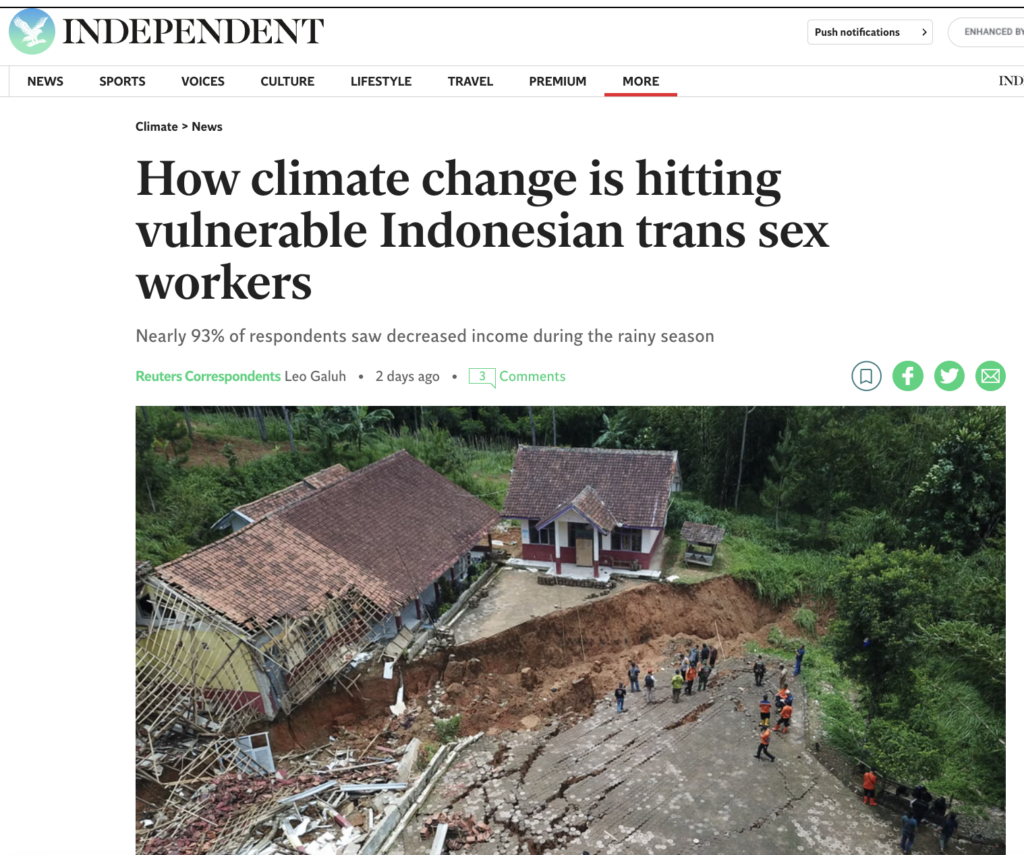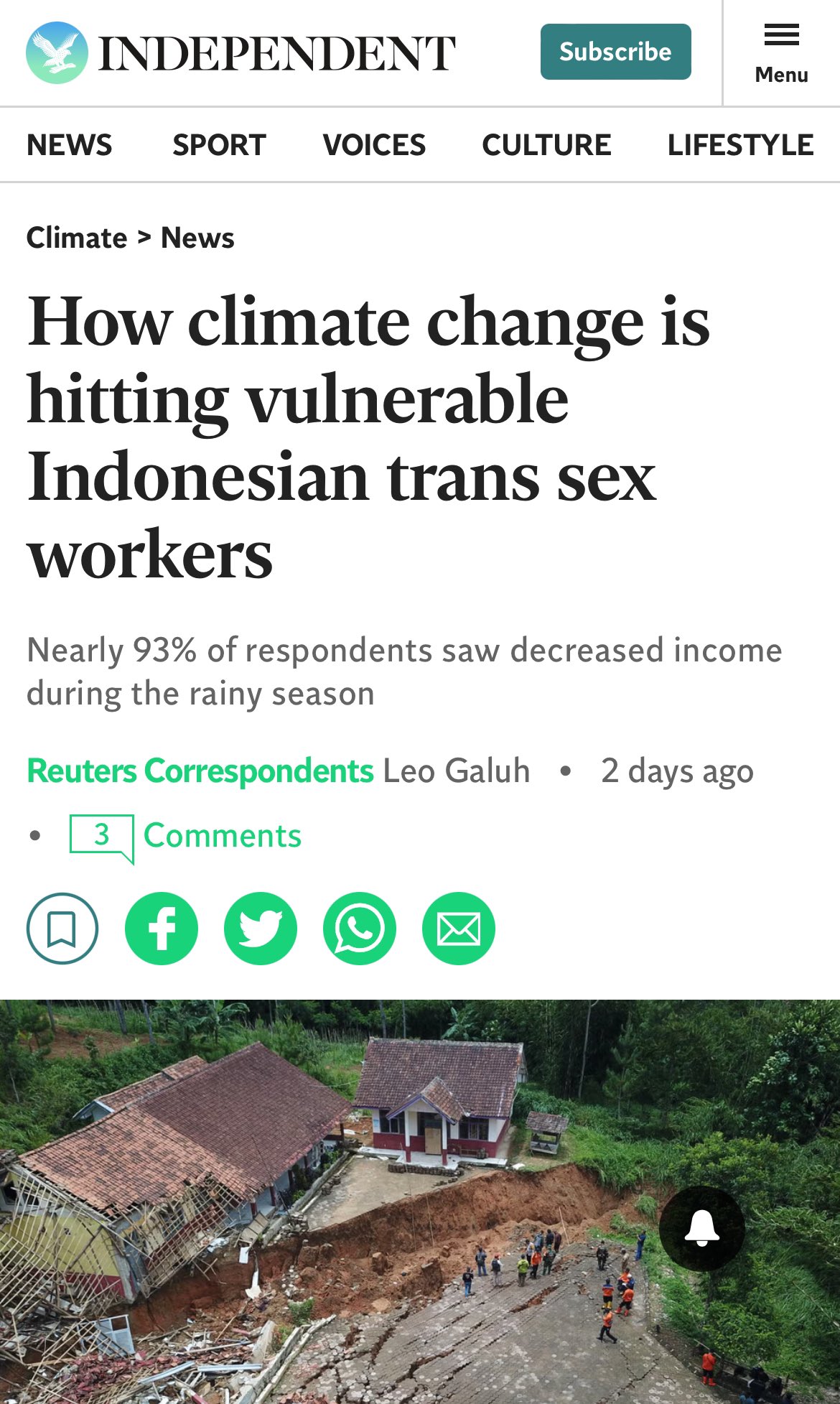Reuters Correspondents By Leo Galuh
Nearly 93% of respondents saw decreased income during the rainy season
Joya Patiha, a 43-year-old Indonesian transgender woman, first started to notice that changing weather patterns in the mountain-ringed city of Bandung were affecting her income as a sex worker a decade ago.
The rainy season was lasting longer across the West Java province, winds were stronger and in some particularly bad years Patiha lost up to 80% of her earnings.
Trans women like Patiha are among the most affected by extreme weather linked to climate change, as well as suffering disproportionately when disasters strike.
“No one is coming out during the longer rainy season,” said Patiha. “It is very hard to make money during that unpredictable weather.”
Indonesia is particularly vulnerable to the effects of climate change, and trans women, who tend to face more stigma and marginalisation than trans men or other LGBTQ+ Indonesians, are also among those hardest hit by extreme weather.
That’s because many trans women, like Patiha, are shut out of the formal economy and survive as buskers and sex workers, occupations that rely on them being able to solicit clients outdoors.
Sherly Wijayanto, a 28-year-old trans woman from the capital Jakarta, worked as a busker for around seven years until the increasingly volatile weather made her seek other options.
“I no longer want to endure the heat and rain on the streets,” said Wijayanto, who joined trans-led arts group Sanggar Seroja, where she now sings with the theatre company and runs the social media channel.
As well as seeking to adapt their precarious livelihoods to the new climate reality, these women and the groups that support them are also seeking to raise awareness of the challenges posed by extreme weather in a nation composed of more than 17,000 islands.
…
Arif Budi Darmawan, a researcher at the Bandung-based Resilience Development Initiative said: “Climate change makes the vulnerable even more vulnerable.”
…
The group’s coordinator Rikky, who asked that his first name only be used, said unpredictable weather also led to “illness, debt, stress, conflicts with local residents, and heightened levels of violence”.
#
#

UK Independent via Reuters – April 3, 2024: Joya Patiha, a 43-year-old Indonesian transgender woman, first started to notice that changing weather patterns in the mountain-ringed city of Bandung were affecting her income as a sex worker a decade ago. The rainy season was lasting longer across the West Java province, winds were stronger and in some particularly bad years Patiha lost up to 80% of her earnings. Trans women like Patiha are among the most affected by extreme weather linked to climate change, as well as suffering disproportionately when disasters strike. “No one is coming out during the longer rainy season,” said Patiha. “It is very hard to make money during that unpredictable weather.” …
Indonesia is particularly vulnerable to the effects of climate change, and trans women, who tend to face more stigma and marginalisation than trans men or other LGBTQ+ Indonesians, are also among those hardest hit by extreme weather. …
Arif Budi Darmawan, a researcher at the Bandung-based Resilience Development Initiative said: “Climate change makes the vulnerable even more vulnerable.” … The group’s coordinator Rikky, who asked that his first name only be used, said unpredictable weather also led to “illness, debt, stress, conflicts with local residents, and heightened levels of violence”.



